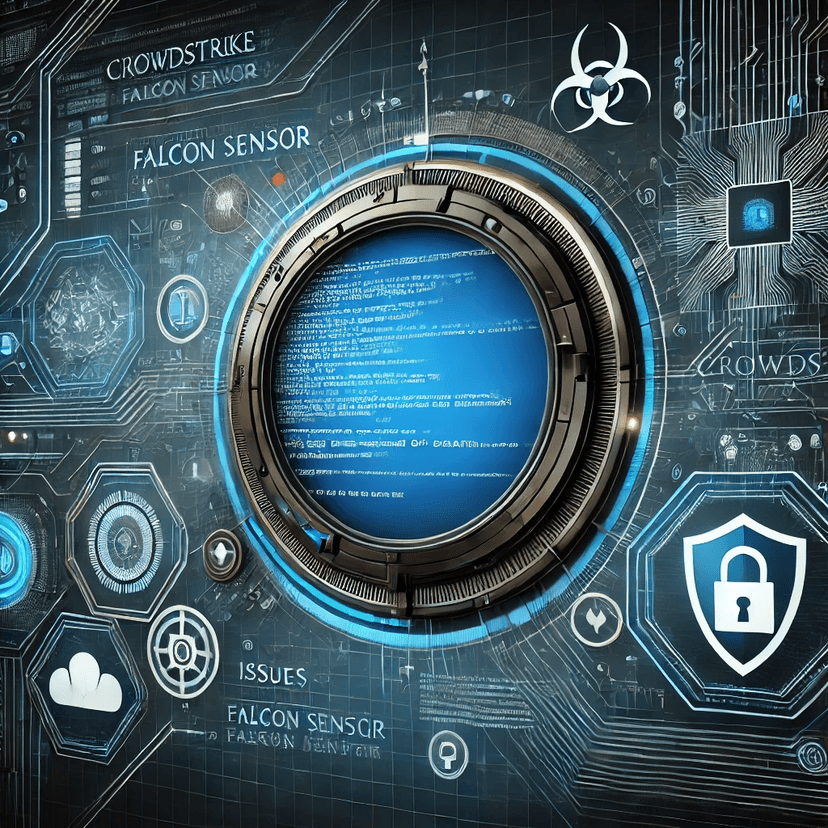
What is CrowdStrike?
CrowdStrike is a leading cybersecurity technology company known for providing endpoint protection, threat intelligence, and incident response services. Founded in 2011, CrowdStrike's flagship product is the Falcon platform, which offers comprehensive security solutions designed to protect against a wide range of cyber threats. The platform leverages artificial intelligence (AI) and machine learning to detect, prevent, and respond to security incidents in real time.
What is a Falcon Sensor?
The Falcon sensor is a lightweight agent deployed on endpoints (such as laptops, desktops, and servers) that continuously monitors for signs of malicious activity. It collects and analyzes data to identify potential threats, using CrowdStrike's cloud-based analytics to provide real-time protection. The sensor plays a crucial role in CrowdStrike's ability to deliver high-fidelity detections and rapid incident response capabilities.
Recent Issues with Falcon Sensor
Detection Logic Update Bug
In June 2024, CrowdStrike released a detection logic update for the Memory Scanning prevention policy within the Falcon sensor. Unfortunately, this update exposed a bug in sensor versions 7.15 and earlier, causing the Falcon sensor to consume 100% of a single CPU core. This led to significant performance degradation for affected systems, particularly those running mission-critical workloads where rebooting was not feasible.
Impact on Companies
For companies relying on CrowdStrike's Falcon platform, this bug meant a sudden and severe impact on system performance. The increased CPU usage resulted in degraded sensor functionality, making it challenging for IT teams to maintain normal operations. Organizations running 24/7 operations, such as hospitals and financial institutions, faced particularly difficult scenarios, as rebooting systems was not a viable option without causing disruption.
Implications for Cybersecurity
The bug highlights the critical nature of thorough testing and validation of security updates before deployment. Even leading cybersecurity solutions like CrowdStrike can face issues that have widespread repercussions. This incident underscores the importance of having robust incident response plans and the ability to quickly roll back updates when necessary.
How It Affects Us Today
The immediate effect of the bug was a disruption in normal operations for affected companies, forcing them to find workarounds to maintain system performance. For the broader cybersecurity community, it serves as a reminder of the complexities involved in maintaining and updating security infrastructure. Ensuring continuous protection while minimizing operational impact remains a delicate balance.
Roadmap to Fixing the Issue
Immediate Steps
- Rollback of the Update: CrowdStrike promptly rolled back the problematic detection logic update to prevent further spread of the issue.
- Reboot Recommendations: Affected systems were advised to reboot to restore normal operations. CrowdStrike emphasized that upgrading, downgrading, or uninstalling the sensor would not resolve the issue without a reboot.
Long-Term Solutions
- Enhanced Testing Protocols: CrowdStrike is likely to implement more rigorous testing protocols to prevent similar issues in the future.
- Communication Improvements: Improved communication with customers regarding updates and potential impacts can help manage expectations and reduce panic in similar situations.
- Incident Response Enhancements: Developing more robust incident response strategies to quickly address and mitigate issues as they arise.
Conclusion
The recent issues with CrowdStrike's Falcon sensor serve as a crucial learning opportunity for both the company and the broader cybersecurity community. While the immediate impact was significant, the proactive steps taken by CrowdStrike to address and resolve the issue highlight the importance of agility and responsiveness in cybersecurity. By enhancing testing protocols and communication strategies, CrowdStrike can continue to provide top-tier protection while minimizing disruptions to its customers.